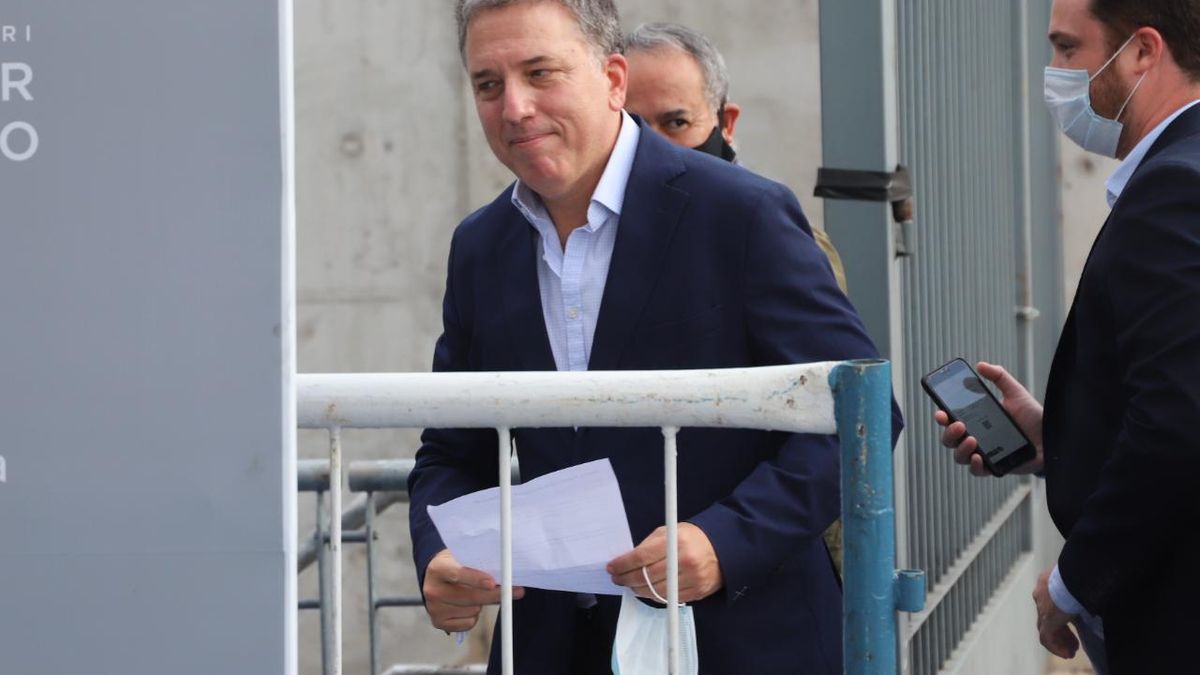The idea was to battle with the strategy of contributing all the dollars that the market asked for, with the aim of giving the markets an image that the Government would not violate the right of savers at all levels to access foreign exchange. And that, over time, the attitude would recreate enough confidence to convince the public and companies that the country respected its commitments and was trustworthy to continue receiving and releasing dollars. Argentina’s request was met with the radical refusal of the IMF’s number two, the North American David Lipton.
This economist, of democratic origin and ideological heir to Anne Krueger, was militantly opposed to violating article VI of the IMF charter, which states that “no member may use the Fund’s general resources to face a considerable exit or continuous capital ”. The Washington technician (a man with decision-making power), was not part of the IMF missions that negotiated, endorsed and then audited the stand-by, but released his colleagues who did participate from responsibilities. Macri personally called President Donald Trump to ask him to pressure / enable the IMF to allow him to use the money from the stand-by to carry out exchange policy.
The American didn’t even think about it. He called his Secretary of the Treasury Steven Mnuchin, who in turn telephoned Lipton to give him the order to obey Macri if he wanted to remain in office. Lipton finally accepted and signed the permission for the country to have some US $ 6,000 million to contain eventual exchange runs, with a daily limit of US $ 250 million, inaugurating a stage of broad outflow of foreign currency, exchange stability and an increase in Macri in the polls. The stand by signed by Macri in June 2018, was refuted in September of that year; expanding to a final US $ 57,400 million that would be loaned in stages; and, again, it was imposed that they should be solely and exclusively intended to cover debt maturities.
Eventually, and under specific supervision of the Fund, to cover tax deviations. As this operation had to include the sale of foreign currency in the local market, which would cause interventions in the exchange market and the issuance of pesos, it had to be negotiated with Washington. The second moment was already in the 2019 electoral period, when the Fund made the internal decision to support, almost unconditionally, the Macri government after Trump and Christine Lagarde realized that being related to an eventual management of Cristina de Kirchner would be very difficult to digest. By May 2019, a new stage of monetary and exchange policy was inaugurated from the Palacio de Hacienda and the BCRA, once high-level negotiations had been concluded with both the US government and the top leadership of the IMF.
In the first case, the direct intervention came from Mnuchin, who proved to have a say. The Trump official had assured his Argentine counterpart, Nicolás Dujovne, that in the face of any extreme difficulty Argentina had, he should only call him personally. And if the claim were reasonable, there would be no problem accessing the order. As long as it was not a direct loan, which would be impossible for the US Congress to approve, where Trump does not have many cards to play. Communications with Mnuchin occurred a little over 10 days ago, and they were always fruitful. It remained that from the IMF there was a radical change in its internal policy of expressly prohibiting (and in particular Argentina) the access of money from the agency’s loans to contain exchange rate runs.
The jailer for this option was Lipton, who until the spring IMF assembly held a stony and non-negotiable position on this issue. In those days of 2019, the debate was how to convince Lipton to sign a credit modification for Argentina, so that the dollars can be used to execute exchange policy. In principle, Lipton did not accept the alternative. However, he chose to step aside and let Lagarde assume responsibility before the board, in the event that the aid does not yield results and the stand-by program ends on bad terms. Only with this attitude was Argentina able to obtain the definitive approval of the board, altering the organic charter of the Fund.
SEE PART ONE HERE
Source From: Ambito
David William is a talented author who has made a name for himself in the world of writing. He is a professional author who writes on a wide range of topics, from general interest to opinion news. David is currently working as a writer at 24 hours worlds where he brings his unique perspective and in-depth research to his articles, making them both informative and engaging.




